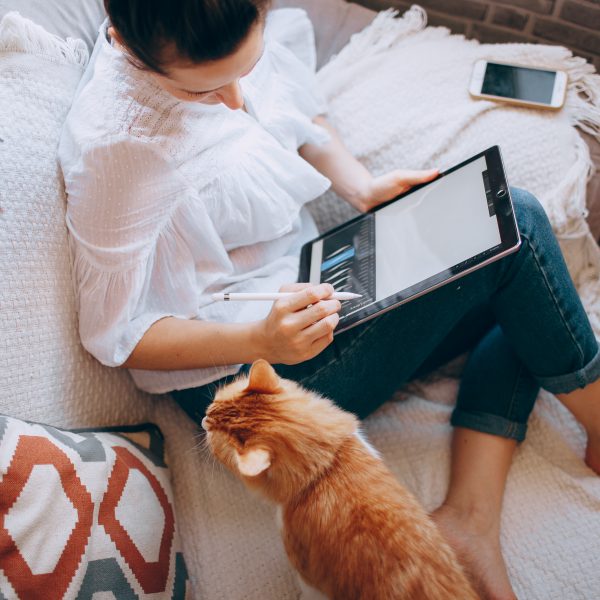Working from home can have some surprising downsides. Shutterstock
Why working from home is counter-productive
It was 7.30am and my husband and two children had just left for work and preschool. Outside, the rain hammered our roof. Cosy in my dressing gown and with the heater at my feet, I was glad not to be going out. Instead, I perched my laptop on the kitchen bench and worked from home: a luxury of modern life.
But as winter rolled on, I began to wonder: is working from home all that it promised?
A few months ago, it seemed like a great idea to cut back my days in the office. I’d save a couple of hours each day commuting, avoid inane banter with colleagues and spend more time focused on getting things done. The first few weeks were bliss: I started work at 7.30 and was chuffed at what I had achieved by 9. “If I were in the city, I’d only just be arriving!”
Two months in, my experience changed. I felt grumpy and had less energy, even though I’d been much less active. By 9pm, I was exhausted and ready for bed. It was harder to concentrate and I was not nearly as productive as I was in the first couple of weeks.
Macquarie University is conducting a big research project into mental fitness. According to associate professor Blake Dear: “We know a lot about what actions people need to stay physically fit: exercise, drink water and eat well. But surprisingly little research has been done into what actions people should take each day to stay mentally healthy.
“So far, we can see it’s important that at least some things happen each day: a social activity, a physical activity and a pleasant activity.
“A physical activity could be a walk to the train station, and a pleasant experience could be getting positive feedback on your work. These things are more likely happen in a structured work environment. If you work from home a lot, it’s easy for them to slip: your mood will drop, your energy levels will drop, and you’ll become less productive.”
This resonates with my experience. I’m an introvert by nature so I assumed I would be content with my own company. I see my family in the morning and at night.
“Family isn’t enough,” Dear says. “A variety of interactions, doing new things and visiting new places all positively affect your mental health.”
According to Dear, there are a number of risks in working from home.
Low mood
Workplaces provide a structured environment for people to socialise. Interactions on the street, between colleagues and with clients, all provide a boost to our sense of wellbeing and energy.
I noticed that after working from home for a while, I started missing other things. I stopped attending events for breakfast or at night, and turned down a dinner with friends. It seemed silly to go all the way into the city for just a couple of hours. Dear warns that when people start to withdraw in one area, they will often spiral and are at risk of developing low mood.
Concentration
I thought that avoiding social interactions would increase my ability to focus and get things done. But I found the opposite. After a few weeks at home, I’d find that tasks like writing an article from start to finish would take longer than in the office, where people would break my focus.
“Regular task switching can actually be good for concentration,” Dear says. “And with increased energy from socialising and feedback, it’s likely you’ll be more productive in an office.”
Creativity
“Engaging with others will help you develop your own thinking,” Dear says. I’ve noticed that I think clearly and am more likely to be creative and innovative in conversation with others than I am alone.
Finally, a routine of working from home could have long-term health impacts. “Social interaction appears to be a protective factor for Alzheimer’s. The more social people are throughout their lives, the lower the risk of developing dementia.”
Working from home is appealing. There’s access to a well-stocked kitchen, no need to bother with make-up and I can put my head into producing work. But it feels cruddy to look up and realise I’m still in my pyjamas at midday.
For the past week, I’ve reversed my routine and am back in the city four days a week. I’m happier, I have more energy, I’m being creative and I’m generating ideas face-to-face with clients and colleagues. And I’m getting much more done.
